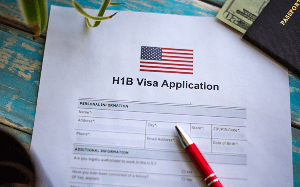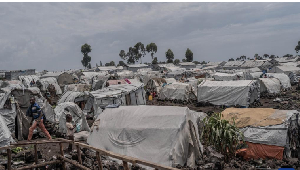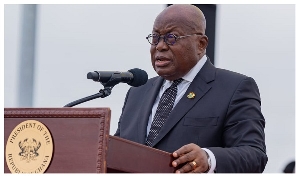Politics of Tuesday, 10 March 2015
Source: starrfmonline.com
Mahama peddled
The Minority in Parliament has accused President John Mahama of peddling falsehood about the country’s GDP growth rate for 2014, which the caucus claims the President quoted as 7.1% at a recent meeting with industrialists in Germany.
Delivering its version of the state of the nation address, the Minority, through its Leader Osei Kyei-Mensah-Bonsu said: “When the President recently met some industrialists in Berlin, Germany he stated to them that: “Ghana’s economy will register a GDP growth rate of 5% for 2015 compared with 7.1% (GDP growth rate) in 2014,” referencing the Ghanaian Times edition of Wednesday January 21, 2015.
“The President’s statement was a palpable falsehood because the 2014 GDP growth is given as 6.9% by the Ghana Statistical Service (GSS) whereas the Ministry of Finance (MoF) and Bank of Ghana (BoG) collaboratively state it as 4.6% with a non-oil sector growth of 3.8% (ref page 158 of 2015 Budget). The difference between the figures of GSS and MoF clearly point to the uncoordinated nature of the management of the country’s economy under President John Dramani Mahama,” the Suame MP said at a press conference Monday.
“The 4.6% GDP growth rate has been reviewed further downwards by MoF, BoG to 4.2%. The question is where did the President conjure the 7.1% GDP growth for 2014 from?
“Again, for 2015, the President’s own budget statement projects a GDP growth rate of 3.9% and not 5% as the President proclaimed at the Berlin forum. At the end of the negotiation with the IMF, the projected grant for 2015 has been revised downwards to 3.5%.
“The non-oil sector is projected to grow in 2015 at a mere 2.7% in 2015. That projected GDP growth for the non-oil sector represents the worst non-oil sector performance since 1998! That is the huge economic downshift that the maladministration of President Mahama has foisted on the nation,” Mensah Bonsu said.
The Minority also raised issues with the exchange and interest rates as well as international reserves as far as the economy’s performance is concerned.
EXCHANGE RATE
The exchange rate that had been used in the 2014 Budget was GH¢1.92 to US$1.00. That Budget projected that the cedi will depreciate slightly to GH¢2.35 to US$1 by December 2014. On February 25, 2014 when the President delivered his message the exchange rate was GH¢2.20 to US$1.00. By the first quarter of 2014 the cedi had depreciated by 17.6%. At the end of August 2014 the cedi had depreciated by 75% since December 2013 and was selling at GH¢3.85 to $1. By December 2014 the cedi had made some recovery from GH¢3.85 to US$1 to GH¢3.20 (courtesy of proceeds from the Eurobond issue and the syndicated loan for cocoa) and even that represented a depreciation of over 64% from the December 2013 level.
Today the exchange rate is GH¢3.60 to US$1.00. The simple meaning is that in the space of one year, between the address of the President in 2014 and 2015 the cedi has depreciated by 63.6%.
At the outset of President Kufuor’s administration the exchange rate was GH¢0.72 to US$1.00. At the point of Kufuor’s exit the rate was GH¢1.1 to US$1.0. That represented a depreciation of 53% over the entire 8-years regime of President Kufuor. Six (6) years into the NDC administration the dollar has depreciated by over 227%. That is the true state of the strength of the Ghana Cedi.
INTEREST RATES, INTERNATIONAL RESERVES, ETC
Kufuor inherited a regime of interest rates that were around 42%. By 2008 interest rates had climbed down significantly to 25%. Today interest rates hover around 32-33% thus significantly increasing the cost of doing business in the country.
The Minister of Finance in his budget presentation stated that our Gross International reserves have since August 2014 recovered from 2.2months of import cover to 3.3months but the net international reserves covers less than 3weeks. The nation needs to know what the real quantum of our international reserves is.
The reason for this demand is that in paragraph 74 of the 2014 Budget the Minister of Finance stated our reserves decreased from $5.32billion as at December 2012 to US$5.2billion as at September 2013 which provided for 2.9months of import cover. The projection then was that it would go further down subsequently.
The Governor of the Bank of Ghana reported in March 2014 that the reserves decreased to US$4.88billion as at February 2014. In the circumstance, when the President through his Minister of Finance now states that the Stock Position of our Gross International Reserves as at December 2013 was US$5.6billion (par 62 of 2015 Budget) there must be a confusion of figures.
Since 2008 the country’s fiscal deficit and current account deficit have all escalated into double digits. The public debt stock has now risen astronomically from GH¢9.5billion as at the end of 2008 to GH¢76.1billion. This figure does not include the undisbursed portion of the CDB loan. It does not include the borrowings ensuing from the IMF negotiations. It does not include the assistance from the EU which is conditional upon successful conclusion of the IMF negotiations, etc.
With a debt stock of over GH¢76billion it means each Ghanaian, including the child being delivered as I speak owes GH¢3,000.00. Last year at this time when we addressed Ghanaians we stated that the debt burden for every Ghanaian was GH¢2,200.00. Just one year on the debt per capita has increased by 36%.
In 2008, the debt stock of GH¢9.5billion represented 33% of GDP. Today 6years into the Mills-Mahama administration the debt stock has increased by over 701% that is an average increase in the stock of debt by 116.8% a year. The debt stock of GH¢76.1billion means our debt stock has escalated to 67% of GDP an increase of GH¢24.2billion in just a year. This rate of debt accumulation must be frightening to everyone else except the President and his ministers. On this trajectory Ghana is on the super highway to unsustainable debt levels that pushed us to HIPC. At this rate, the international rating agencies may soon classify Ghana as a country with high risk of debt distress and thus compromise our ability to raise further financing from the international capital markets, and worse still, incapacitate the country from servicing and paying our debts.
At the Berlin conference the President stated that Ghana is among the top five recipients of foreign direct investment in Africa. The question that we keep asking is how has that together with the colossal loans contracted over the past 6years totaling US$27billion impacted the socio-economic development of the country?
Mr. President, the country is now at a precipice with our astronomical debt pile up and this should be extremely worrying to you as it shall, before long, plunge us into the league of countries with high risk of debt distress.
Mr. President, the interest payment on the stock of debt in 2014 was 4 times Ghana’s oil revenue in that year. In 2015 the interest payment on the debt is projected to be ¢9.6billion. This figure is more than the GH¢9.5billion total debt stock in 2008. Then President Mills and Vice President John Mahama did not spare Kufuor.
Today, the GH¢9.6billion represents 6 times Ghana’s oil revenue in 2015. In the 2015 budget the entire allocations to the Ministry of Roads and Highways (GH¢931.6million), Ministry of Trade and Industry (GH¢183.8million) Ministry of Fisheries & Aquaculture Development (GH¢72million), Ministry of Food and Agriculture (GH¢411.8million), Ministry of Water Resources, Works and Housing (GH¢463million), Ministry of Transport (GH¢361.6million) amount to a total of GH¢2.4 billion.
Interest payments of GH¢9.6 billion on the GH¢76 billion debt stock in 2015 is four times what has been allocated to these six key ministries combined. For 2014, using these same six key ministries, their total budgetary allocation came to GH¢2,062 million and interest payments in 2014 was three times the total allocation to these 6 key ministries. Today, it is four times. Mr. President this is what your unchecked borrowing and debt pile up is doing to the economy. It is scorching out critical space that was available to government for real growth. Fellow Ghanaians, this is our lot.











